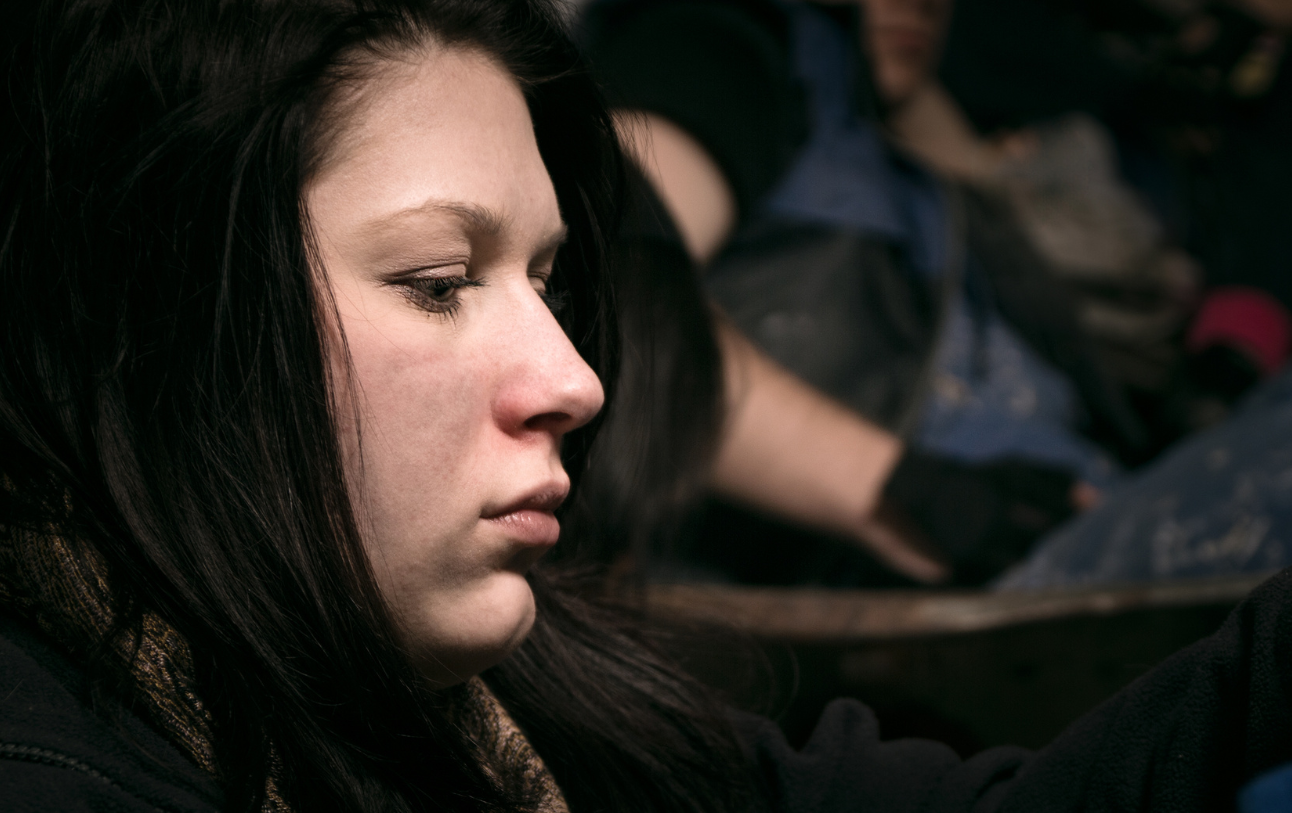There are many reasons why young people become homeless, but one of the most common is the breakdown of family relationships. The trauma of witnessing and/or experiencing domestic abuse in conjunction with the terror of leaving and becoming homeless is going to result in a deeply traumatised young person. Additionally, leaving home to escape violence often leaves young people estranged from family and without the support networks that most of us take for granted, often when they are in most need of these relationships and support. Housing providers need to be aware of all these factors.
Once they do become homeless, so many young people are not accessing appropriate accommodation because they do not disclose the full extent of their traumatic experiences. Often this is because the young person does not recognise, or perhaps cannot name, what they have been experiencing as domestic abuse. It could be that this dynamic so ingrained that it has become ‘normal’ for them; they are so conditioned that they believe what they are experiencing is love or how it’s ‘supposed to be’.
If we do not understand what they have experienced, how can we help them address it? Not being able to say ‘domestic abuse’, let alone disclosing it, means that many young people do not access accommodation and support that is responsive to their experiences.
How can professionals identify the signs and symptoms of abuse?
The responsibility cannot lie entirely with young people to recognise and verbalise what they are experiencing as domestic abuse. Instead, it is up to us as adult professionals to identify the patterns and ‘red flags’ that suggest domestic abuse, and then know how to respond appropriately. When housing providers and councils fail to understand the dynamics of young people’s experiences of homelessness and domestic abuse, they cannot provide responsive support.
One young person explained:
I would never have named domestic violence as something I was experiencing. It was my support worker who started exploring this with me. The only reason I was able to accept this from her, and not push her away, is because we had a good relationship … my support worker had been working with me for over a year and I really trusted her.
I didn’t feel that way about many people so when she got me to talk about what was happening I felt okay doing that with her
One young person
Within 1625 Independent People, we are currently developing ‘Healthy Relationship’ workshops to roll out to as many young people accessing our services as possible. We are hoping to help young people to identify both positive and negative relationships, and give them a language to talk about difficult relationships in their own lives. One of the aims of the workshops is to help people accessing our services know their rights and where to go to access support if they need it in the future.
Far too often young people are at risk of losing their tenancies due to domestic abuse when housing providers again do not see the ‘red flags’ of abuse that young people cannot always identify and verbalise. Here are a few to look out for:
- Rent Arrears: Financial abuse could also be potentially in the mix; we often see young people unable to pay rent and bills due to their partner controlling the finances, and with their rent arrears increasing, housing providers will begin the process of warnings of eviction and possible homelessness.
- Anti-social Behaviour: They could be threatened with eviction due to neighbour complaints around noise and anti-social behaviour – when in fact they have had to endure another assault and are re-victimised with threats of eviction.
- Dependencies on the perpetrator: We need to be aware of further complexities of domestic abuse relationships and housing; victims with disabilities or mental health issues may feel they can’t leave because they rely on their abusive partner’s ‘support’, and the unknowns of the housing world may be more terrifying than remaining in an abusive home.
Why do young people struggle to access appropriate support even where domestic abuse is identified?
Even when domestic abuse is identified, and housing providers are seeking a solution, they often assume that staying at home is the safest solution, and that making home ‘safe’ is the only remedy. But this may not always be the most appropriate and safest response. The perpetrator may have family in the area which could perpetuate ongoing stalking and harassment. Victims know how safe they are so as professionals we need to hear this. Evidence proves that risk of homicide and serious harm increases dramatically at the point of exiting an abusive relationship.
There is an additional assumption that young people should follow the same local support pathways as adults into specialist domestic abuse services. There is an inherent challenge in this, as we know from experience that young people are less likely to engage with specialist providers – it’s another ‘expert’ or ‘professional’ in their lives whom they do not see as accessible.
Support providers need to be aware of this and ensure they have both the specialist skills within the organisation and the links with specialist agencies. This ensures that even if there is not direct work, advice and support can be provided to the key worker who the young person is comfortable to engage with.
One of our Intensive Support Workers who has a background in domestic abuse says:
Ultimately, what we can be up against, is some professionals who make decisions influencing our young peoples’ safety and recovery will not take domestic abuse seriously.
With the additional issues such as being challenging, with multiple traumas and unhealthy coping mechanisms, [young people] are often disregarded as being a nuisance and not taken seriously. Everyone has the right to be safe; in their relationships and where they live”
Intensive Support Workers
Accommodation providers need to ensure their staff are aware of the issues surrounding domestic abuse and homelessness, and that they approach these issues with empathy, non-judgment and avoiding the culture of victim blaming. Staff should be aware that not all those who present with tenancy issues have the language (or understanding) to disclose that domestic abuse is happening. If we all stay alert, and approach domestic abuse with a zero tolerance attitude, we can help end the cycle of abuse.
About
1625 Independent People prevents youth homelessness in the South West and has been helping 16-25 year olds reboot their lives through housing and support for over 30 years. Our service works because we keep young people’s needs at the centre of all delivery.
For the past two years, Karen Clark has managed the service provision of 1625 Independent People in South Gloucestershire. She brings to the role over 20 years of experience supporting survivors of domestic and sexual violence both within the frontline and national services. Karen has used her expertise to develop frontline domestic abuse services, including community based Idva services, Marac process in Bristol, and quality assurances programmes for domestic abuse projects across the country. Karen provides agencies such as the Police, Social Services and Education, with specialist training around DVA awareness and risk assessment.



